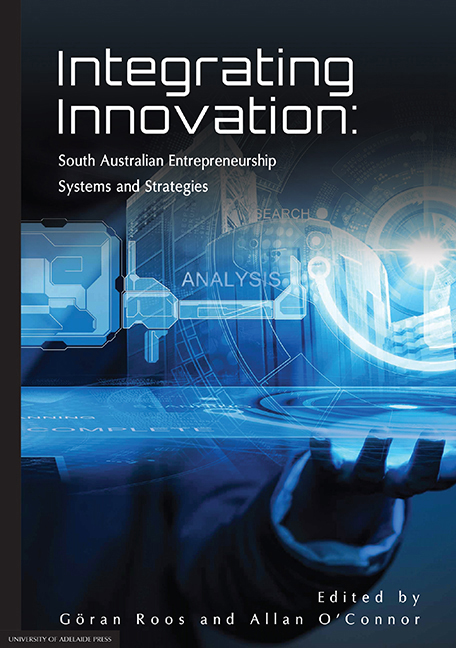Book contents
- Frontmatter
- Contents
- Chapter Abstracts
- Notes on Contributors
- Foreword
- Introduction
- Part 1 Regional-level perspectives
- Part 2 Firm-level perspectives
- 5 Do clusters matter to the entrepreneurial process? Deriving a conceptual model from the case study of Yalumba
- 6 Operationalising innovation: Hotwiring the creative organisation
- 7 Business model innovation in nonprofit social enterprises
- Part 3 Innovation management perspectives
- Conclusion
5 - Do clusters matter to the entrepreneurial process? Deriving a conceptual model from the case study of Yalumba
from Part 2 - Firm-level perspectives
Published online by Cambridge University Press: 05 February 2016
- Frontmatter
- Contents
- Chapter Abstracts
- Notes on Contributors
- Foreword
- Introduction
- Part 1 Regional-level perspectives
- Part 2 Firm-level perspectives
- 5 Do clusters matter to the entrepreneurial process? Deriving a conceptual model from the case study of Yalumba
- 6 Operationalising innovation: Hotwiring the creative organisation
- 7 Business model innovation in nonprofit social enterprises
- Part 3 Innovation management perspectives
- Conclusion
Summary
Introduction
Industrial clusters are geographic concentrations of interconnected companies and institutions in a particular field (Porter, 1990). In recent decades, researchers have paid much attention to the important role played by industrial clusters in inspiring regional entrepreneurship, economic competitiveness and productivity. In the field of entrepreneurship research, sources of opportunity and the entrepreneurial behaviours to exploit these opportunities are considered as two main research areas (Shane & Venkataraman, 2000). Judging from the success of some industrial clusters in various parts of the world and existing research outcomes, industrial clusters and entrepreneurship are closely related phenomena (Rutherford & Holmes, 2007; Wennberg & Lindqvist, 2010). However, most of the research on the impacts of industrial clusters on entrepreneurship focuses on innovation, firm creation or firm growth effects of clusters at the regional level. Limited research has been found in the literature to explore the interaction between industrial clusters and entrepreneurial processes systematically at the firm level.
This chapter attempts to address the above research limitation by deriving a conceptual model articulating the integrated components of industrial clusters, entrepreneurial behaviours in established firms and types of entrepreneurial opportunities. In doing so, we illustrate two fundamental entrepreneurship research questions. What are the sources of entrepreneurial opportunities in clusters? And what are the entrepreneurial behaviours that established firms use to exploit the entrepreneurial opportunities? To respond to these questions we conduct a review of the literature and test it against a case study.
There are six sections in this chapter. In the following section we analyse eight components of industrial clusters. In the section after that we discuss the entrepreneurial process: entrepreneurial opportunities and entrepreneurial management behaviours of established firms. In the next section we present a conceptual model of the entrepreneurial process within industrial clusters and provide propositions about their dynamic interactions. On this basis, in the next section, we conduct an analysis on the case study of Yalumba in the Barossa wine region of South Australia which shows that the entrepreneurial process is active and evident in clusters and that the research in this area is worthwhile. We discuss research limitations and future research directions in the final two sections of the chapter.
- Type
- Chapter
- Information
- Integrating InnovationSouth Australian Entrepreneurship Systems and Strategies, pp. 119 - 158Publisher: The University of Adelaide PressPrint publication year: 2015



